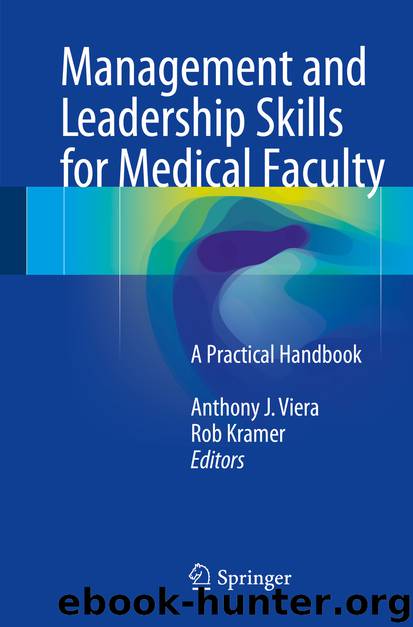Management and Leadership Skills for Medical Faculty by Anthony J. Viera & Rob Kramer

Author:Anthony J. Viera & Rob Kramer
Language: eng
Format: epub
Publisher: Springer International Publishing, Cham
Testifying
If sued for malpractice, physicians are usually required to testify in their own defense about the care they provided to the patient plaintiff. Physicians may also be asked to testify in court on behalf of their own patient(s) as “fact witnesses” to provide information about the patient’s condition and/or treatment provided, even in cases in which they are not being sued. Finally, they may be asked by plaintiffs or defendants to testify as “expert witnesses” because of expertise they possess that may help a court or jury evaluate the SOC issue or the extent of the plaintiff’s injuries. In any of these situations, physicians testify under oath and are obligated to give truthful, accurate, and ethically appropriate testimony.
Generally a physician’s testimony will require the physician to review the patient’s medical records and disclose HIPAA-protected information; both require authorization by either patient consent or a court order. The physician should consult with counsel prior to reviewing a patient’s record (for any purpose other than treatment he or she rendered) or prior to discussing the patient’s care with anyone other than the patient. Except when testifying on their own behalf in a malpractice action, physicians generally may charge reasonable fees for time to prepare for and provide testimony.
Experts may be “non-testifying,” hired by one of the parties to provide a candid evaluation of the claim without any intent to use that individual as a witness in the case. A “testifying expert” is identified as a witness to be used at trial and may be deposed prior to trial, in addition to being a trial witness. A deposition involves recorded testimony provided under oath, with attorneys from both sides present.
To qualify as a testifying expert witness, a physician must practice in the same or a similar specialty as the defendant in question and must have practiced coincident with the time the defendant was treating the patient. In general, the court must be satisfied that the witness brings special knowledge about the type of condition and treatment at issue in the case. Experts are often sought from among medical school or residency training program faculty members, who may have a history of teaching, research and/or publication in the field involved. Physician experts should be unbiased and, ideally, should not agree to testify in cases involving their medical staff colleagues because of the internal difficulties and “political” issues that may cause for the institution.
Some physicians may question why one physician would testify against another ph ysician on the plaintiff’s behalf in a medical malpractice lawsuit. The important thing to remember is that errors do occur, and if medicine professes to discipline itself, it requires knowledgeable physicians to give honest testimony on either side of a case. Testifying against local community physicians who agree to precept medical students may create other “political” problems for academic medical centers, however, which commonly depend on community physicians to refer patients and to assist with the education of medical students or residents. So, academic physicians may wish to av oid becoming experts on the other side of cases involving their community teaching faculty.
Download
This site does not store any files on its server. We only index and link to content provided by other sites. Please contact the content providers to delete copyright contents if any and email us, we'll remove relevant links or contents immediately.
Hit Refresh by Satya Nadella(9125)
The Compound Effect by Darren Hardy(8944)
Change Your Questions, Change Your Life by Marilee Adams(7759)
Nudge - Improving Decisions about Health, Wealth, and Happiness by Thaler Sunstein(7692)
The Black Swan by Nassim Nicholas Taleb(7106)
Deep Work by Cal Newport(7064)
Rich Dad Poor Dad by Robert T. Kiyosaki(6612)
Daring Greatly by Brene Brown(6501)
Principles: Life and Work by Ray Dalio(6421)
Playing to Win_ How Strategy Really Works by A.G. Lafley & Roger L. Martin(6237)
Man-made Catastrophes and Risk Information Concealment by Dmitry Chernov & Didier Sornette(6005)
Big Magic: Creative Living Beyond Fear by Elizabeth Gilbert(5754)
Digital Minimalism by Cal Newport;(5749)
The Myth of the Strong Leader by Archie Brown(5499)
The Slight Edge by Jeff Olson(5410)
Discipline Equals Freedom by Jocko Willink(5379)
The Motivation Myth by Jeff Haden(5204)
The Laws of Human Nature by Robert Greene(5172)
Stone's Rules by Roger Stone(5081)
